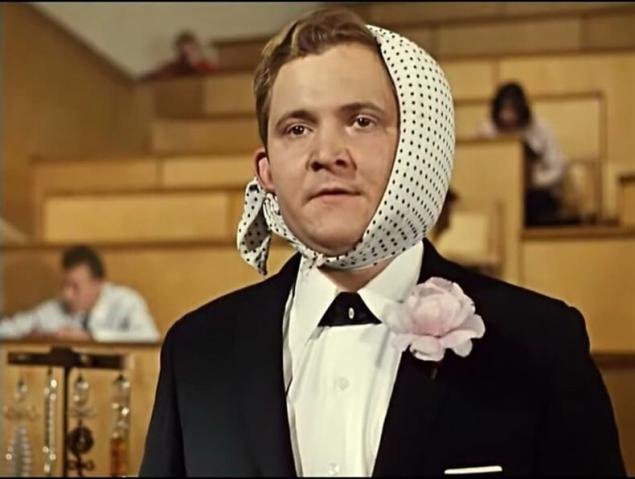496
How to learn the subject the NIGHT before the exam
In the yard – the end of November, and that means very soon in universities will start exam session. High school teachers always call to prepare for the exams from the first of September, and, in General, they are right: if sploshnyakom to read all that bullshit that they have been written extremely messy, Yes, and sometimes clumsy language, remembering all this really take at least several months.
But who of adequate students teaches all this nonsense forever — and for six months before it was reviewed? It is even so that you do not want to teach until the last moment, that is, until the last, when before the exam, there are days, if not the last sleepless night, and "spurs" to use not want or do not knows. That is what the heroes, not chewing, but storming the granite of science, and I want to help.

In this case, probably it is worth to mention: I have experience successfully training students in these methods – it is for Humanities (social science, law, history, literature). What's going on in biology, mathematics, astronomy, physics and chemistry – I have no idea.
But in relation to the Humanities disciplines recommendations work train, always stamp on any reasonable assessment, up to "five". However, only in the case if you do not suffer from memory issues, and if you have a little bit developed associative thinking.
Here we take the example of a school textbook on social studies. Look, what sections it includes the social studies. Write those headings on a piece of paper and memorized (just the section titles). To write, I stress, necessarily!
Next, browse through the sections and make sure that they include chapters and paragraphs, on the basis of this understand what do they want from us (well, the section "economy" studies the production, distribution, exchange and consumption, everything else is derivative).
Further work on each separate section: memorizing and trying to understand the key terms, and other information highlighted in the tutorial in bold, everything else is generally ignored.
By the way, the main problem of students is that they are trying to learn unnecessary turbidity, which in the textbook is usually 95 percent. So this error to repeat, especially repeatedly, should not be. "Water" is not worthy of attention.
In the end, will be surprised that any thick book, being squeezed dry like a lemon, to fit in the notebook, four times smaller than even your lecture notebook. And the content necessary to "five" on the exam, much more than in your lecture notebook.

As soon as we turned to the studies and the section "economy", then let's see what we've got in this section. And here's what happened: you need to remember what the economy, what are the types of economic systems, what are the factors of production, there is still three or four of the law appear in bold.
With proper concentration, it's an hour, tops, and a half – and you will know it all from the teeth. More with you, no one will ask, believe me. Exactly the same with all the other sections. It is highly desirable in the end to leave forty minutes – an hour to speak and hash out written phrases, diagrams, and perhaps some sketches. All of you are ready for the exam, go ahead!
Pitfalls can be on subjects of historical and literary sense. Very much they have a lot of information, it would seem difficult to push in some schematic sketches. Names, subjects, dates... From all of this, the head swells! There is always a risk to confuse the mother with Batu, and Bolkonsky with Lensky.Therefore, when learning history and literature triggered a slightly different method.
If you focus not understand and do not see the causal relationships between dates, events, names and facts, and even if, moreover, the matter is confusing one with the other, then you need to draw a table with a couple of vertical strips and horizontal.
Vertical columns – "name of the acting person", "doing what?" (recorded in just a few words), in relation to history – and even "date" a separate plate to allocate any hard-to-remember peace treaties.
Then horizontally , you should get you understand the story. As a result emerges an extremely compact plate on any work that is not read, but which needs boosted to know and remember, and for each block of historical events (well, there, serfdom, revolutions, world wars, collectivization, "thaw", Gorbachev-Yeltsin democracy and so on in the same spirit).
If still there is confusion – each horizontal strip is allocated a specific color – associative and bind the color to the person and event in the framework of the table. For example, Kolchak do you associate with the color blue, Wrangell – white, and Lenin with red, and sometime Vice-versa – as you prefer to perceive. The main thing – the principle, and it works flawlessly.

Someone might argue that it's very long, and the night before the exam he does not have time. Nothing of the sort! Once you start doing it – you will see that in literature you need to remember only a dozen basic literary works (quite simple, as it turns out, the story), and stories of just a few large blocks of facts and events, and link easily depicted schematically.
All these frightening and seemingly unordered dates, subjects and names, again, compact, thoroughly, and, importantly, to quickly fit into a small notebook.
Well, again – if you choose the most significant, and not bother with unnecessary: for example, in relation to the literature, with Pushkin, Gogol, Chekhov, Tolstoy, Dostoyevsky and Sholokhov, have to strain, and Shalamov, Rubtsova or Vampilov can generally be ignored.
It is necessary to memorize the tables in sections — and, again, you need to leave forty minutes – an hour to get it all to speak in General terms and not to get confused in the exam. And if I shall try in just a few hours, embattled again, guaranteed.
I repeat and emphasize: these schemes are guaranteed to fit all, without exception, the subjects of the Humanities wing. And are the designated methods will allow you to memorize and for some time to remember in detail tutorial of any complexity – high for 6-7 hours until x-hour.
That is, several hours before the exam was "zero" and "wooden", and prepared according the recommendations came, and received "excellent" (or some other maximum point), answering all the tricky questions grumpy and picky examiner. I bet that is more than real! If you, I repeat, do not have pathological memory issues, and if you are completely missing associative and creative thinking.
How to cope with insomnia WITHOUT pills
How to keep a car in the night
It does not expect that learned so information will stay in your head longer than a month. Your goal is only "five" at examination, the honest way, without headphones and "spurs". Want long-term memory – act exactly in the same scenarios, just take the process is not 6-7 hours, and, say, a couple of days on each subject.
Another moment, and the moment is important... Too often forced to resort to technology I would still not recommend: one-two-three in the session is fine, but from the systematic of such feats psyche really overloaded. Such intellectual marathons, with all of their temporary effectiveness, only valid in very great need. And just before the exam, it is highly desirable to sleep.
Good luck and health for the session! published
Author: Ilya Pozhidaev
Source: Ilya Pozhidaev
But who of adequate students teaches all this nonsense forever — and for six months before it was reviewed? It is even so that you do not want to teach until the last moment, that is, until the last, when before the exam, there are days, if not the last sleepless night, and "spurs" to use not want or do not knows. That is what the heroes, not chewing, but storming the granite of science, and I want to help.

In this case, probably it is worth to mention: I have experience successfully training students in these methods – it is for Humanities (social science, law, history, literature). What's going on in biology, mathematics, astronomy, physics and chemistry – I have no idea.
But in relation to the Humanities disciplines recommendations work train, always stamp on any reasonable assessment, up to "five". However, only in the case if you do not suffer from memory issues, and if you have a little bit developed associative thinking.
Here we take the example of a school textbook on social studies. Look, what sections it includes the social studies. Write those headings on a piece of paper and memorized (just the section titles). To write, I stress, necessarily!
Next, browse through the sections and make sure that they include chapters and paragraphs, on the basis of this understand what do they want from us (well, the section "economy" studies the production, distribution, exchange and consumption, everything else is derivative).
Further work on each separate section: memorizing and trying to understand the key terms, and other information highlighted in the tutorial in bold, everything else is generally ignored.
By the way, the main problem of students is that they are trying to learn unnecessary turbidity, which in the textbook is usually 95 percent. So this error to repeat, especially repeatedly, should not be. "Water" is not worthy of attention.
In the end, will be surprised that any thick book, being squeezed dry like a lemon, to fit in the notebook, four times smaller than even your lecture notebook. And the content necessary to "five" on the exam, much more than in your lecture notebook.

As soon as we turned to the studies and the section "economy", then let's see what we've got in this section. And here's what happened: you need to remember what the economy, what are the types of economic systems, what are the factors of production, there is still three or four of the law appear in bold.
With proper concentration, it's an hour, tops, and a half – and you will know it all from the teeth. More with you, no one will ask, believe me. Exactly the same with all the other sections. It is highly desirable in the end to leave forty minutes – an hour to speak and hash out written phrases, diagrams, and perhaps some sketches. All of you are ready for the exam, go ahead!
Pitfalls can be on subjects of historical and literary sense. Very much they have a lot of information, it would seem difficult to push in some schematic sketches. Names, subjects, dates... From all of this, the head swells! There is always a risk to confuse the mother with Batu, and Bolkonsky with Lensky.Therefore, when learning history and literature triggered a slightly different method.
If you focus not understand and do not see the causal relationships between dates, events, names and facts, and even if, moreover, the matter is confusing one with the other, then you need to draw a table with a couple of vertical strips and horizontal.
Vertical columns – "name of the acting person", "doing what?" (recorded in just a few words), in relation to history – and even "date" a separate plate to allocate any hard-to-remember peace treaties.
Then horizontally , you should get you understand the story. As a result emerges an extremely compact plate on any work that is not read, but which needs boosted to know and remember, and for each block of historical events (well, there, serfdom, revolutions, world wars, collectivization, "thaw", Gorbachev-Yeltsin democracy and so on in the same spirit).
If still there is confusion – each horizontal strip is allocated a specific color – associative and bind the color to the person and event in the framework of the table. For example, Kolchak do you associate with the color blue, Wrangell – white, and Lenin with red, and sometime Vice-versa – as you prefer to perceive. The main thing – the principle, and it works flawlessly.

Someone might argue that it's very long, and the night before the exam he does not have time. Nothing of the sort! Once you start doing it – you will see that in literature you need to remember only a dozen basic literary works (quite simple, as it turns out, the story), and stories of just a few large blocks of facts and events, and link easily depicted schematically.
All these frightening and seemingly unordered dates, subjects and names, again, compact, thoroughly, and, importantly, to quickly fit into a small notebook.
Well, again – if you choose the most significant, and not bother with unnecessary: for example, in relation to the literature, with Pushkin, Gogol, Chekhov, Tolstoy, Dostoyevsky and Sholokhov, have to strain, and Shalamov, Rubtsova or Vampilov can generally be ignored.
It is necessary to memorize the tables in sections — and, again, you need to leave forty minutes – an hour to get it all to speak in General terms and not to get confused in the exam. And if I shall try in just a few hours, embattled again, guaranteed.
I repeat and emphasize: these schemes are guaranteed to fit all, without exception, the subjects of the Humanities wing. And are the designated methods will allow you to memorize and for some time to remember in detail tutorial of any complexity – high for 6-7 hours until x-hour.
That is, several hours before the exam was "zero" and "wooden", and prepared according the recommendations came, and received "excellent" (or some other maximum point), answering all the tricky questions grumpy and picky examiner. I bet that is more than real! If you, I repeat, do not have pathological memory issues, and if you are completely missing associative and creative thinking.
How to cope with insomnia WITHOUT pills
How to keep a car in the night
It does not expect that learned so information will stay in your head longer than a month. Your goal is only "five" at examination, the honest way, without headphones and "spurs". Want long-term memory – act exactly in the same scenarios, just take the process is not 6-7 hours, and, say, a couple of days on each subject.
Another moment, and the moment is important... Too often forced to resort to technology I would still not recommend: one-two-three in the session is fine, but from the systematic of such feats psyche really overloaded. Such intellectual marathons, with all of their temporary effectiveness, only valid in very great need. And just before the exam, it is highly desirable to sleep.
Good luck and health for the session! published
Author: Ilya Pozhidaev
Source: Ilya Pozhidaev
Ants in Fiji about 3 million years ago learned how to grow fruit
How to reduce energy costs using sensors























